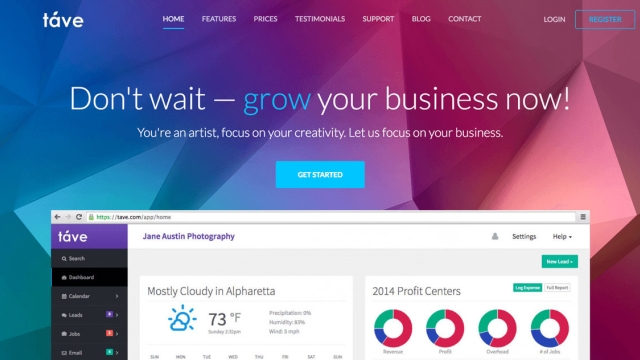Are you a creative professional looking to excel in managing your studio and clients? Look no further! In this article, we will dive into the secrets of mastering the art of studio and client management, equipping you with all the tools and strategies you need to achieve unparalleled success. From harnessing the power of CRM (Customer Relationship Management) systems to streamlining your invoicing process, these invaluable insights will empower you to take control, enhance productivity, and build long-lasting relationships with your clients. So, let’s embark on this journey together and unlock the hidden potential of studio and client management!
The Importance of Effective CRM and Studio Management
Effective CRM and studio management are crucial elements for achieving success in the creative industry. By implementing robust systems and strategies, professionals can streamline their operations and enhance their relationships with clients. In this article, we will explore the significance of thoughtful CRM and studio management practices and delve into the secrets of mastering them.
- Ensuring Smooth Workflow:
Efficient studio management is the backbone of any creative enterprise. It encompasses various aspects like project planning, resource allocation, and timeline management. By establishing well-defined workflows, studios can optimize their productivity and deliver exceptional results to clients. Effective studio management ensures that all team members are aware of their responsibilities and deadlines, facilitating collaboration and coherence.
- Nurturing Strong Client Relationships:
Client management is another vital component of success in the creative industry. Building and maintaining strong relationships with clients can lead to repeat business, referrals, and long-term partnerships. A successful CRM strategy involves developing a comprehensive understanding of clients’ needs and expectations, actively listening to their feedback, and effectively communicating with them throughout the project lifecycle. By fostering a client-centric approach, studios can establish trust, boost client satisfaction, and set themselves apart from the competition.
- Improving Financial Management:
In addition to project and client management, a well-rounded CRM system also incorporates financial management. Timely and accurate invoicing, expense tracking, and financial reporting are essential for maintaining a healthy studio. By implementing effective invoicing processes, studios can ensure prompt payment, allowing for reliable cash flow. This, in turn, enables them to invest in superior resources, training, and development opportunities for their team, ultimately enhancing their ability to deliver outstanding results.
In conclusion, mastering the art of CRM and studio management is crucial for success in the creative industry. By prioritizing smooth workflow, nurturing strong client relationships, and maintaining effective financial management practices, professionals can create a solid foundation for their studio’s growth and reputation. The next sections of this article will dive deeper into specific strategies and secrets to optimize these key areas of studio and client management. Stay tuned!
2. Streamlining Invoicing and Financial Management for Client Satisfaction
Efficient invoicing and financial management are crucial aspects of studio and client management. By implementing effective systems for CRM (Customer Relationship Management) and streamlined financial processes, studios can ensure client satisfaction and maintain healthy business relationships. Here are some key strategies to consider:
Firstly, leverage CRM software to centralize client information and streamline communication. A reliable CRM system allows studios to store and organize client details, track interactions, and manage project progress. This helps in maintaining accurate records, understanding client preferences, and communicating effectively with clients. Utilizing CRM software also enables studios to generate invoices directly from client data, saving time and reducing errors.
Secondly, implementing automation in the invoicing process can greatly improve efficiency. By using invoicing software, studios can create professional-looking invoices with ease, customized to align with their branding. With automated invoicing, studios can set up templates, schedule recurring invoices, and send reminders for outstanding payments. This provides convenience for both the studio and the client, ensuring a smooth invoicing experience.
Lastly, maintaining transparency in financial management is essential. Clearly communicating payment terms, such as due dates and accepted payment methods, avoids misunderstandings and minimizes delays in payments. Studios should also maintain open lines of communication with clients regarding any changes or updates related to billing or project costs. By keeping clients informed and involved in financial discussions, studios can build trust and foster long-term relationships.
In summary, streamlining invoicing and financial management is a vital part of studio and client management. Leveraging CRM software, implementing automation in invoicing, and maintaining transparency in financial processes are key strategies to achieve client satisfaction and smoothly manage studio operations.
3. Best Practices for Successful Client Management
CRM
Establish Clear Communication Channels: Effective client management starts with establishing clear communication channels between the studio and its clients. Utilizing a CRM (Customer Relationship Management) system can greatly facilitate this process, allowing you to keep track of client interactions, important dates, and any specific requirements. Regularly updating clients on the progress of their projects and promptly addressing any concerns or inquiries helps to build trust and maintain a positive working relationship.

Define and Manage Expectations: Setting realistic expectations from the outset is essential for successful client management. Clearly communicate the scope, timeline, and deliverables of each project, ensuring that both parties are on the same page. Regularly review project milestones and communicate any changes or delays promptly. By managing expectations effectively, you can minimize misunderstandings and ensure client satisfaction.
Streamline Invoicing and Payments: Accurate and timely invoicing is crucial for a well-managed studio. Implementing an efficient invoicing system helps to streamline the payment process and avoid any disputes over financial matters. Utilize software that allows for easy generation and tracking of invoices, as well as automated reminders for overdue payments. Consistency and transparency in financial transactions foster trust and strengthen client relationships.
Remember, successful client management goes beyond completing projects on time and within budget. It involves effective communication, managing expectations, and maintaining a transparent and efficient workflow throughout the entire client-studio relationship. By implementing these best practices, you can master the art of studio and client management, leading to long-term success in the industry.

